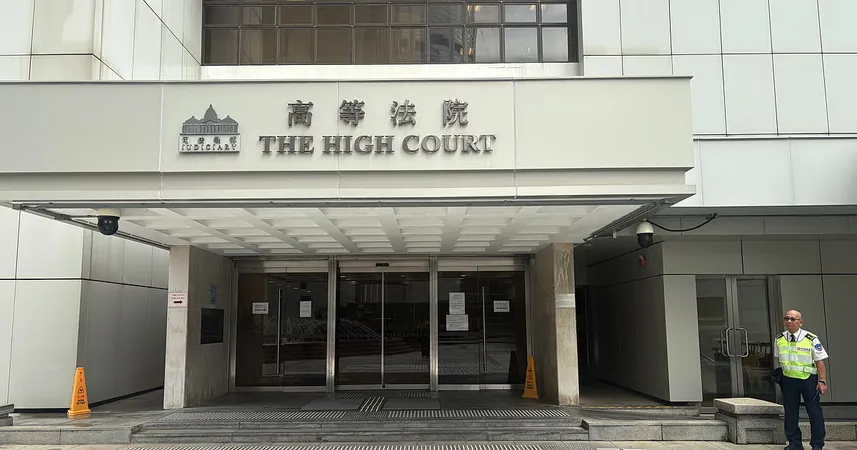
SHOCKING: ICE's New Deportation Policy Allows Removal to Dangerous 'Third Countries' with Minimal Notice!
2025-07-16
Author: Ling
In a controversial move, the Trump administration has unveiled a chilling new policy that permits Immigration and Customs Enforcement (ICE) to deport immigrants to countries where they have no connections, sometimes with as little as six hours’ notice. This memo, issued by acting Director Todd Lyons on July 9, raises grave concerns that these deportees may face persecution or torture upon arrival.
Lyons's memo states the policy is "effective immediately," directing ICE personnel to act quickly in certain urgent situations. If the U.S. has diplomatic assurances—or alleges to have them—from a receiving country that deportees will not be harmed, ICE may proceed without further checks. However, the catch here is that these assurances may not always be credible, and they often lack transparency.
Under the new guidelines, if an individual is at risk of deportation without these guarantees, ICE must provide a notice of removal, including the name of the destination country, in a language the immigrant can understand. Yet, in exigent circumstances, removals can occur shockingly fast—sometimes in mere six hours—compromising the individual’s ability to seek legal counsel.
This policy could impact migrants who have received final deportation orders, including those identified as being at risk of danger upon return. This includes countries like Cuba, where the U.S. lacks diplomatic relations to ensure safety.
Critics are alarmed. Trina Realmuto from the National Immigration Litigation Alliance expressed deep concerns over this policy, arguing it blatantly circumvents statutory and constitutional requirements for individual assessments before deportations can occur. She stated that immigrants may receive barely enough notice to comprehend the dangers they may face, stating, “It’s simply not enough time.”
Realmuto further demanded transparency from the government regarding which countries they have struck agreements with for deportations and what exactly these countries gain in return.
On the government’s side, officials have claimed success in negotiating agreements with "safe third countries" for deportation, with the aim of expediting the removal of what they label the "worst of the worst" criminals. Assistant Secretary Tricia McLaughlin defended the policy, asserting it ensures due process while safeguarding American citizens.
These drastic measures follow a recent Supreme Court ruling allowing the Trump administration to proceed with deportations to countries without prior connections, triggering a dissent from Justice Sonia Sotomayor who criticized the ruling as one that rewards lawlessness and disregards the inherent dangers many of these individuals may face.
As this new policy takes effect, uncertainty looms for countless immigrants facing immediate deportation to potentially life-threatening situations.


 Brasil (PT)
Brasil (PT)
 Canada (EN)
Canada (EN)
 Chile (ES)
Chile (ES)
 Česko (CS)
Česko (CS)
 대한민국 (KO)
대한민국 (KO)
 España (ES)
España (ES)
 France (FR)
France (FR)
 Hong Kong (EN)
Hong Kong (EN)
 Italia (IT)
Italia (IT)
 日本 (JA)
日本 (JA)
 Magyarország (HU)
Magyarország (HU)
 Norge (NO)
Norge (NO)
 Polska (PL)
Polska (PL)
 Schweiz (DE)
Schweiz (DE)
 Singapore (EN)
Singapore (EN)
 Sverige (SV)
Sverige (SV)
 Suomi (FI)
Suomi (FI)
 Türkiye (TR)
Türkiye (TR)
 الإمارات العربية المتحدة (AR)
الإمارات العربية المتحدة (AR)